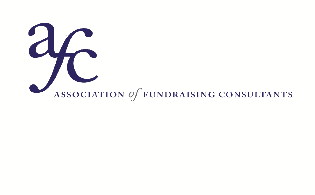Why use a member of the Association of Fundraising Consultants for your fundraising project?
In a previous blog, I discussed the merits of using a fundraising consultant. Here, my thoughts turn to the benefits of using Association of Fundraising Consultants (AFC) members and some rationale behind the purpose of employing one of its members.
"The Association of Fundraising Consultants exists to foster the development and growth of the profession of fundraising consultants, to preserve and enhance fundraising activity, to ensure high professional standards amongst our members and to promote a true understanding of the role of fundraising." (Source: www.afc.org.uk)
Fundraising consultants who are members of the AFC are seen as professionals who give the best possible advice to charities seeking funds to support the work of their cause and beneficiaries.
Fundraising is an absolute necessity for the survival of a vast majority of charities. Its importance has grown further in recent years, as public sector budgetary cuts have impacted reduced government funding for charitable activities.
The role of fundraising is often misunderstood on several levels. Many organizations don’t understand the need to conduct fundraising with appropriate expertise. I’m forever amazed that people have no hesitation in consulting an accountant about a financial problem, or a plumber about a water problem, but when it comes to searching for thousands or millions of pounds, a volunteer amateur may have the experience, but in most cases they don’t.
Fundraising – like most things in life – doesn’t happen of its own accord. Large-scale fundraising in particular is not straightforward. Rushing in where angels fear to tread is often counterproductive.
As part of its purpose, the AFC also states that: "Fundraising consultants act for not-for-profit organizations in an advisory capacity and do not normally directly solicit or receive funds." (Source: www.afc.org.uk)
There is good reason for this statement. In any fundraising endeavour, an organization may need advice on systems, documentation, marketing materials, volunteer recruitment and briefing, how to approach potential donors, as well as leadership and management. An experienced professional with the appropriate expertise can provide this. However, a fundraising consultant is not the appropriate person to solicit funds. That is the task of a volunteer who has been fully equipped and briefed by a fundraising consultant. The reason for this is straightforward. A potential donor is more likely to give and at a higher level if, in addition to being a supporter of a particular project, he or she knows and respects the person making the approach. A prerequisite to success is an effective partnership between a fundraising professional and a volunteer.
When funds are sought from a potential donor, there are many factors that need to be taken into account. The larger the potential gift, the more preparation is needed. However, the actual approach should be made by a supporter of the charity, who is well known to the potential donor.
I’ll use the opportunity of future blog posts to help unpick the AFC’s Code of Practice in more detail. Watch this space!
For further information about the AFC, please visit www.afc.org.uk
15.06.2016
For more information, call us on 01264 860003 or send an email.



